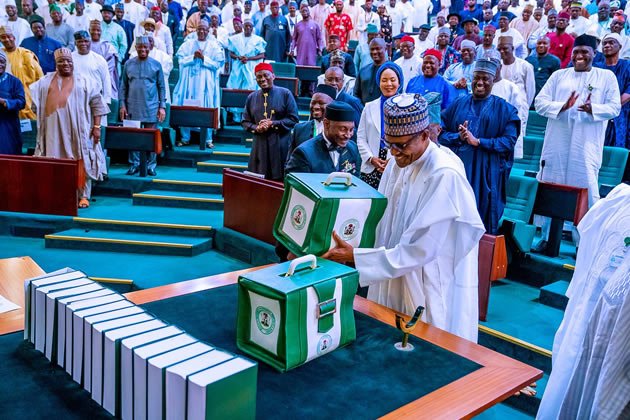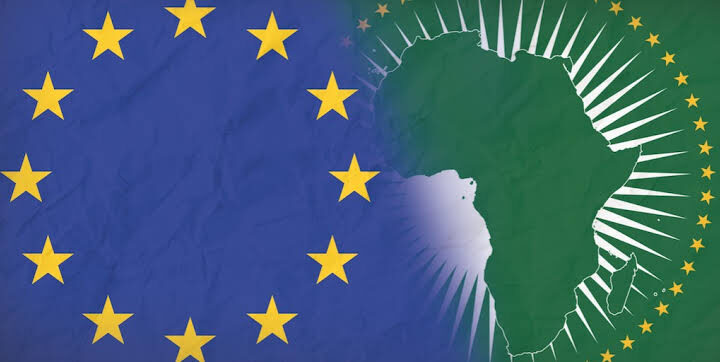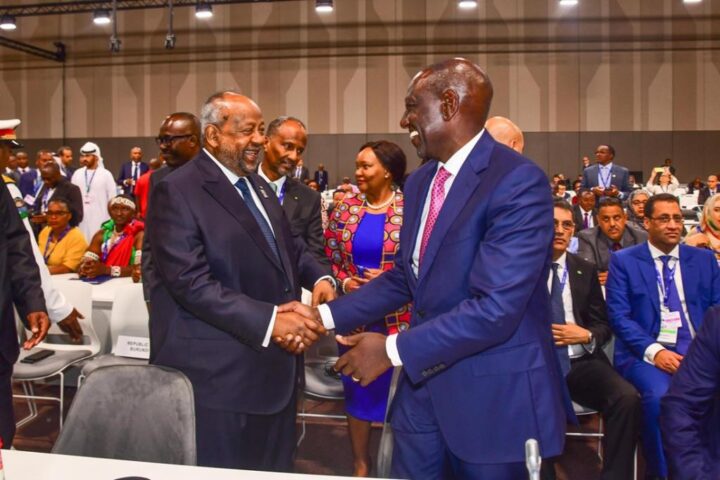THE 2022 Budget Proposal presented by President Muhammadu Buhari to a joint session of the National Assembly last week Thursday has come under thorough scrutiny of the general public and experts alike.
We note with praise the sustained timely transition of budget proposals to the National Assembly by the present administration since 2015. The timely submission has always afforded the window needed for robust and gainful debates before passage.
Join our WhatsApp ChannelHowever, the proposed Budget, entitled Budget of Economic Growth and Sustainability, shows gaps in its parameters and fiscal assumptions that are not likely to create economic growth or sustainability.
The 2022-2024 Medium Term Expenditure Framework (MTEF) and Fiscal Strategy Paper sets out the parameters for the 2022 Budget as follows:
a. Conservative oil price benchmark of 57 US Dollars per barrel;
b. Daily oil production estimate of 1.88 million barrels (inclusive of Condensates of 300,000 to 400,000 barrels per day);
c. Exchange rate of four 410.15 per US Dollar; and
d. Projected GDP growth rate of 4.2 per cent and 13 per cent inflation rate.
Based on these fiscal assumptions and parameters, total federally collectable revenue is estimated at N17.70 trillion in 2022.
While it is realistic to project oil price at $57 per barrel, the country may need not only determination, but also fortune to achieve its projected 1.88 million barrels per day, an exchange rate of N410.15 to the dollar and, by extension, the projected 4.2% in GDP growth. The uncertainties surrounding oil production and exchange rate may challenge the sweet projections made in the 2022 appropriation.
Analysing the proposed Budget, Development Economist Dr Chiwuike Uba said that “Many of the 2022 budget parameters appear to be either unrealistic or overtly too ambitious. Without any doubt, the budgeted oil price benchmark is in order and could be realised. However, raising the daily oil production budget to 1.88 million barrels per day is overly ambitious and unrealistic. The average daily oil production for the first half of 2021 is 1.61 million. Consequently, it is virtually almost impossible for the federal government to reach 1.88 million in production in the light of the increasing insecurity in Nigeria, among other issues.
“Since 2015, the Federal Government’s actual revenues have remained below the revenue budgets. In 2015, the actual revenue was N3.24tn, N3.86tn in 2019, and N3.42tn in 2020. This is less than a 20 per cent increase in 2019 over 2015 and a 12.9 per cent decrease in 2020 over 2019.”
This highlights the need for an informed and thorough legislative review of the proposed budget in order to check the trend of borrowing to finance deficit since the daily oil production estimate of 1.88 million barrels appear unrealistic.
Analysing the projected GDP growth rate of 4.2 per cent and 13 per cent inflation rate, he said that “The target inflation rate of 13% and GDP growth rate of 4.2% are fairly realistic. That is, if and only if national productivity increases and food inflation decreases. On the other hand, the rate of inflation could reach 15% by the end of 2022 if the pump price of fuel and the price of electricity is raised and if insecurity is not dealt with adequately. Nonetheless, achieving the projected GDP growth of 4.2% would not necessarily lead to economic development or growth, except that there is job creation. What Nigeria needs today is inclusive growth and not the usual bubble growth, as evidenced by GDP growth in the past years.”
The federal government must beware of the increased accumulation of national debt and the culture of financing fiscal deficit with loans and borrowings.
As Chiwuike argues, “The N3.6 Trn 2022 budget for debt service is extremely unrealistic. In the first half of 2021, the total debt service is already N2.02trn, which is more than 21 per cent higher than the budgeted debt service of N1.662trn for the same period. This means that the total debt service payment in 2021 may be in the vicinity of N4.3trn.
“This projection is based primarily on the six-month report and the galloping growth rate of the public debt. Nigeria is accumulating more and more debt in 2021 and plans to finance the 2022 fiscal deficit with additional loans. Furthermore, the 2022 budget deficit of N6.5trn may likely increase by the end of 2022. This in turn, would impact the additional debt required to fund the budget. Taking these assumptions into account, N5.0trn would provide a more realistic debt service budget in 2022.” There is always a high level of risk when deficits exceed budgeted limits. The risks manifest in rising debt servicing, which cause systemic stress on government disposable revenue, leading in turn to more external borrowing that worsens the debt situation. The fallouts are usually runaway inflation, and unrealised capital budgets – that is if Mr president refuses to borrow further to finance them.
Perhaps no one knows what will happen. That’s the need for early planning at Mr President has done. To support the ambitious proposals in the budget, the present administration must heed the advice of experts in the following areas: give more urgent attention to security and decongestion of the Lagos ports; spare the manufacturing sector of further strain from Excise Duties, promote local productions and stem external borrowing.
















![Gender Activism An Economic Necessity In Africa [PBA Editorial]](https://www.primebusiness.africa/wp-content/uploads/2023/11/vaw-720x480.png)
Follow Us